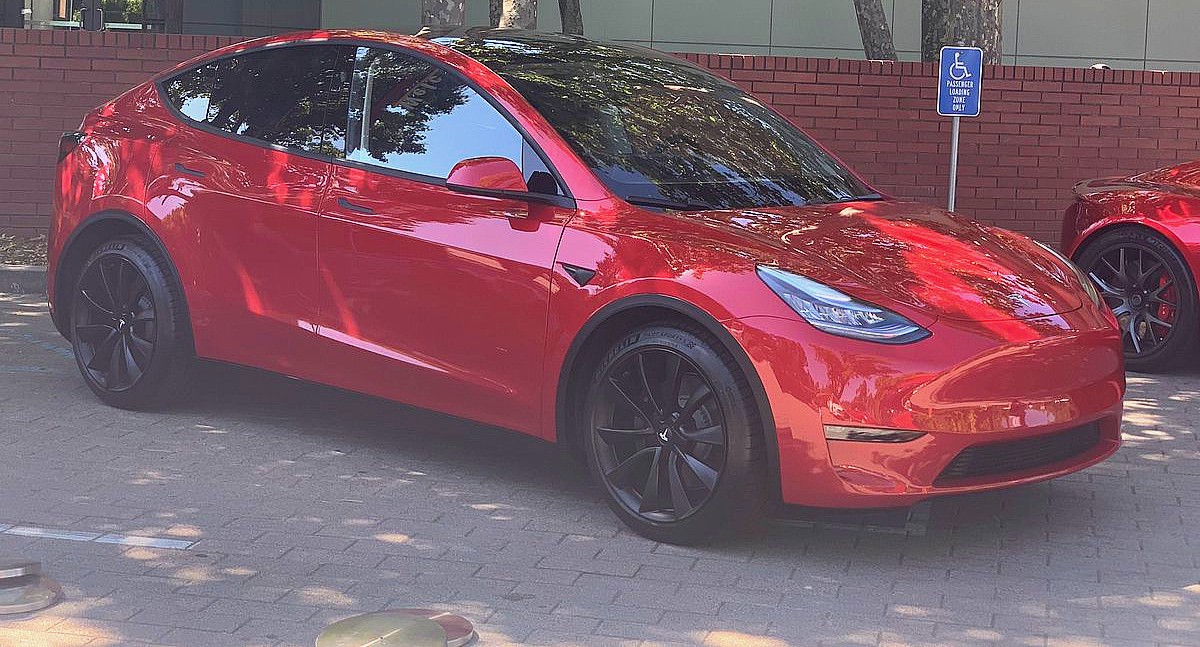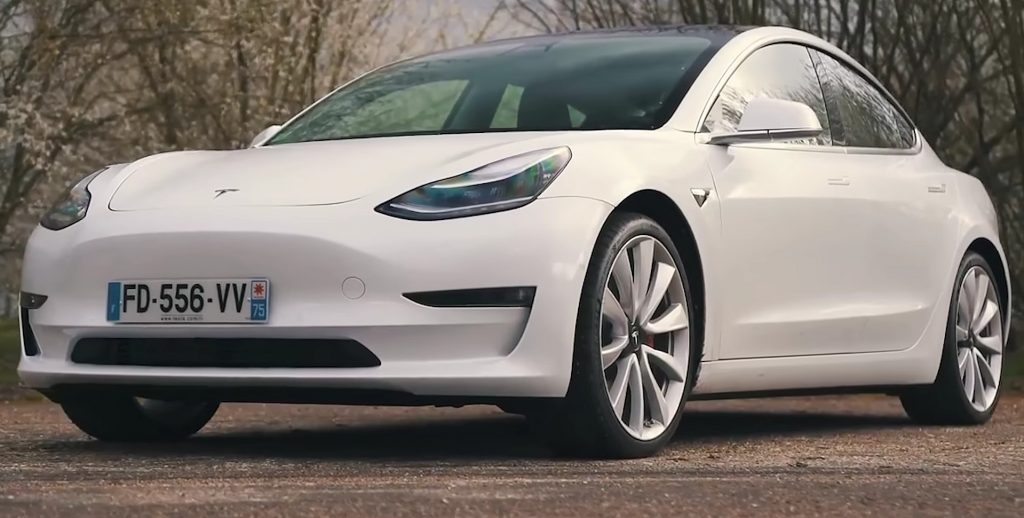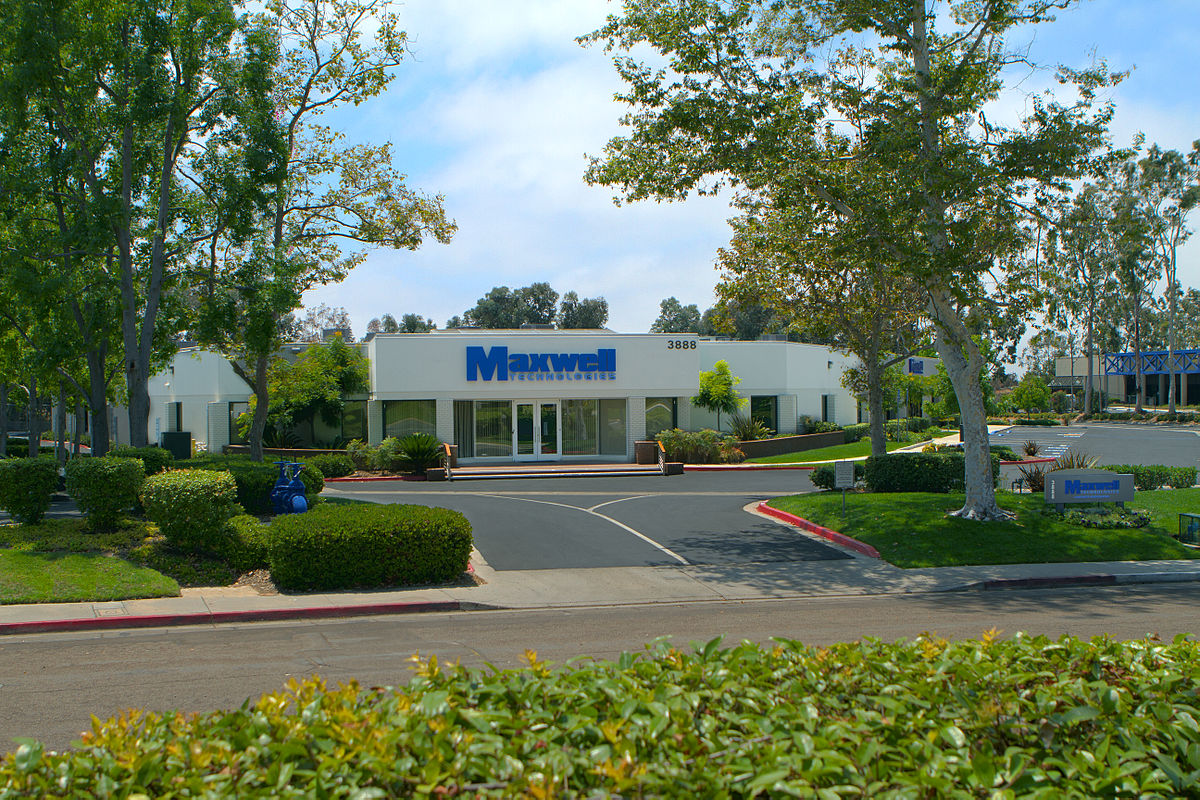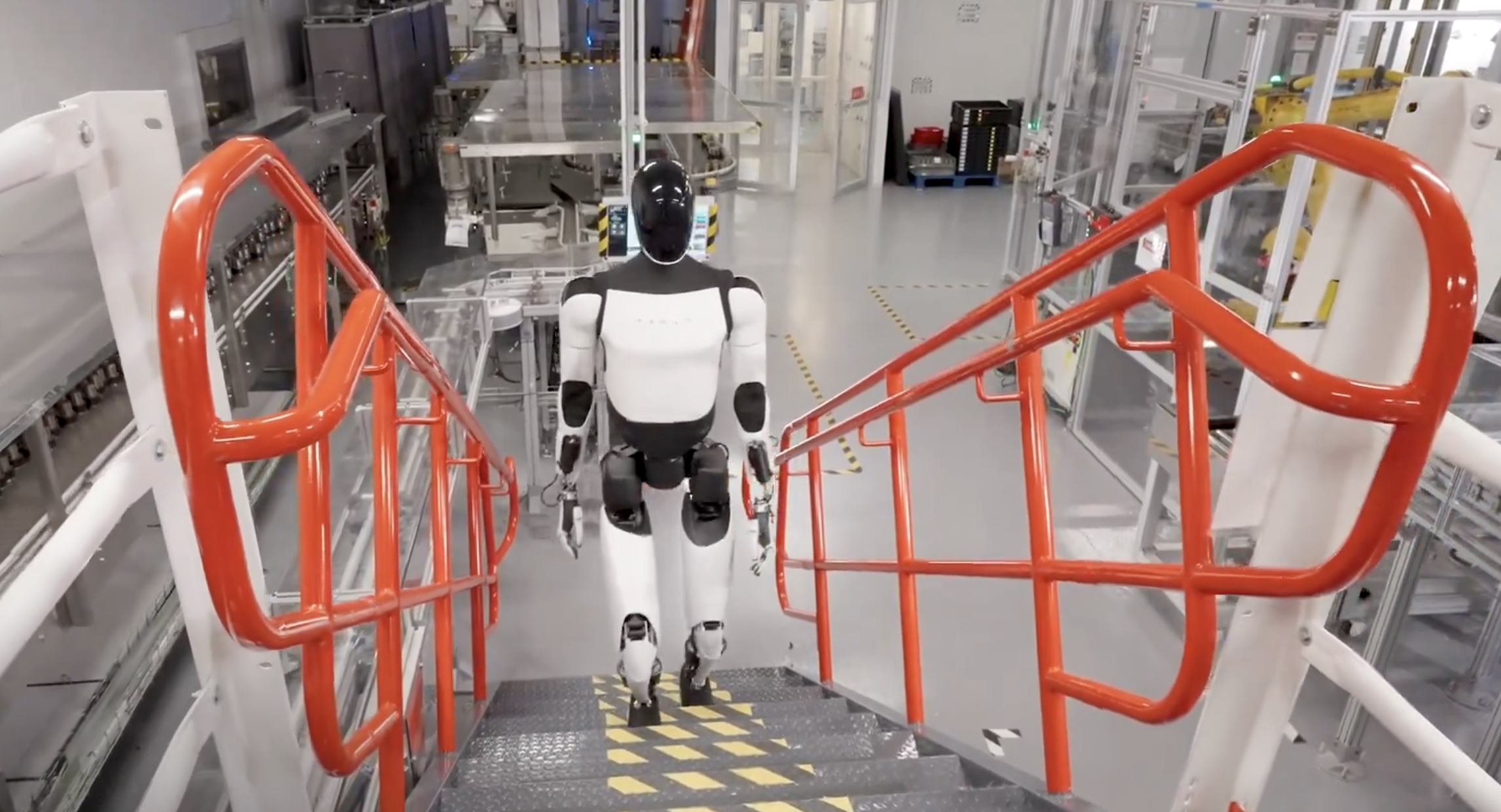

Investor's Corner
Auto experts share insights on Tesla Model Y wiring and how Maxwell’s supercapacitors can improve batteries
There is no doubt that the adoption of electric vehicles is already underway. Key auto markets such as China and Europe have adopted aggressive goals for a zero-emissions future, and electric cars continue to improve with every iteration. Yet, inasmuch as the EV segment has grown since the early days of the original Tesla Roadster, the evolution of electric cars is only just beginning. Over the years, there will be more breakthroughs for all-electric propulsion, and automakers that refuse to acknowledge this will probably find themselves in dire straits.
These, as well as the upcoming EV technologies that are set to make a debut within the next few years, was the focus of an extensive interview with Sandy Munro and Mark Ellis from Munro and Associates. Conducted by Tesla owner-enthusiast Sean Mitchell of All Things EV, the interview touched on several topics, including the breakthroughs that will likely be seen in the Model Y crossover, the potential of Maxwell’s supercapacitors for electric vehicles, and what traditional automakers can do to be more competitive in the emerging EV market.
Munro, who has extensive experience with the early-build Model 3 and several other vehicles like the BMW i3 and the Jaguar I-PACE, noted that the EV he is most excited about is the Model Y. Munro noted that the Y will be an interesting EV because it would likely show just how much Tesla learned from the Model 3 and its challenging ramp. The teardown expert also stated that he is immensely interested to see just what Tesla did to reduce the wiring of the Model Y to 100 meters from 1.5 km in the Model 3.

One thing that Munro and Ellis emphasized in the interview was that when it comes to electric cars, battery technology is key. Munro noted that at this point, any company that aims to push EV batteries further would best be advised to take on emerging technologies such as supercapacitors, which could have great implications for electric car technology. This is where Tesla’s acquisition of Maxwell Technologies could come into play. Maxwell, after all, is primarily noted for two of its innovations: dry electrode batteries and supercapacitors.
Both of these have the potential to improve Tesla’s electric cars significantly. “The dry battery technology is game-changing if it comes to pass and they can put it in a car,” Ellis said while discussing Maxwell’s potential for Tesla. The veteran also provided a scenario where Maxwell’s supercapacitors could play a part in the operation of an EV.
“One of the issues with the battery is, when I step on the throttle hard, I’m pulling a lot of energy from the battery. And then, when I brake hard, I’m pulling a lot of energy out of the regen, but the batteries can’t take it fast enough. The batteries get really stressed when you try to pull it up too much, so if I had supercapacitors that I could use as a cushion; so when I need energy quickly, (I can) pull it from the supercapacitors and then fill the supercapacitors back up with the battery slowly; and then when I brake, I can capture more of that regen energy and do the supercapacitors faster. I think that just makes logical sense, because now all of a sudden I’ve got a sponge in front of my main energy source and I’m not stressing (the battery) so much,” Ellis said.

As for the underwhelming range from competing EVs such as the Audi e-tron and the Jaguar I-PACE, Munro noted that this is simply because of their lack of vertical integration. “(It’s) because they’re buying them from somebody else,” the teardown expert mused. When asked if a good way for traditional automakers to be more competitive in the EV market is to start developing their own battery tech, Ellis warns that adopting such a strategy will likely take a long time.
“That would be a 10-year project. There are going to be leaders in the battery industry, and a lot of the electric chemistries are under patent. They’re gonna have to be licensed. Whoever comes out on top is probably going to win. But just due to the sheer volume of batteries that are going to be needed in the next five years, you basically have three or four battery (cell) companies that are out there. You got Panasonic, you got Samsung, you got LG, and you’ve CATL from China. Those are the big four. Everybody else is going to find a niche in there,” Elli said.
With companies such as Tesla already making headway into the mass market with vehicles like the Model 3 and the upcoming Model Y, it would be easy to perceive the EV segment as having sufficiently matured. It should be noted that this is not the case, as EVs, including Tesla’s electric vehicles like the 370-mile Model S Long Range or the bang-for-the-buck Model 3 Standard Range Plus, still have far more to improve in the years to come. And it is exactly these improvements that make the electric car market just so compelling.
Watch Sean Mitchell’s extensive sit-down interview with Sandy Munro and Mark Ellis in the video below.
Investor's Corner
Tesla could save $2.5B by replacing 10% of staff with Optimus: Morgan Stanley
Jonas assigned each robot a net present value (NPV) of $200,000.

Tesla’s (NASDAQ:TSLA) near-term outlook may be clouded by political controversies and regulatory headwinds, but Morgan Stanley analyst Adam Jonas sees a glimmer of opportunity for the electric vehicle maker.
In a new note, the Morgan Stanley analyst estimated that Tesla could save $2.5 billion by replacing just 10% of its workforce with its Optimus robots, assigning each robot a net present value (NPV) of $200,000.
Morgan Stanley highlights Optimus’ savings potential
Jonas highlighted the potential savings on Tesla’s workforce of 125,665 employees in his note, suggesting that the utilization of Optimus robots could significantly reduce labor costs. The analyst’s note arrived shortly after Tesla reported Q2 2025 deliveries of 384,122 vehicles, which came close to Morgan Stanley’s estimate and slightly under the consensus of 385,086.
“Tesla has 125,665 employees worldwide (year-end 2024). On our calculations, a 10% substitution to humanoid at approximately ($200k NPV/humanoid) could be worth approximately $2.5bn,” Jonas wrote, as noted by Street Insider.
Jonas also issued some caution on Tesla Energy, whose battery storage deployments were flat year over year at 9.6 GWh. Morgan Stanley had expected Tesla Energy to post battery storage deployments of 14 GWh in the second quarter.
Musk’s political ambitions
The backdrop to Jonas’ note included Elon Musk’s involvement in U.S. politics. The Tesla CEO recently floated the idea of launching a new political party, following a poll on X that showed support for the idea. Though a widely circulated FEC filing was labeled false by Musk, the CEO does seem intent on establishing a third political party in the United States.
Jonas cautioned that Musk’s political efforts could divert attention and resources from Tesla’s core operations, adding near-term pressure on TSLA stock. “We believe investors should be prepared for further devotion of resources (financial, time/attention) in the direction of Mr. Musk’s political priorities which may add further near-term pressure to TSLA shares,” Jonas stated.
Investor's Corner
Two Tesla bulls share differing insights on Elon Musk, the Board, and politics
Two noted Tesla bulls have shared differing views on the recent activities of CEO Elon Musk and the company’s leadership.

Two noted Tesla (NASDAQ:TSLA) bulls have shared differing views on the recent activities of CEO Elon Musk and the company’s leadership.
While Wedbush analyst Dan Ives called on Tesla’s board to take concrete steps to ensure Musk remains focused on the EV maker, longtime Tesla supporter Cathie Wood of Ark Invest reaffirmed her confidence in the CEO and the company’s leadership.
Ives warns of distraction risk amid crucial growth phase
In a recent note, Ives stated that Tesla is at a critical point in its history, as the company is transitioning from an EV maker towards an entity that is more focused on autonomous driving and robotics. He then noted that the Board of Directors should “act now” and establish formal boundaries around Musk’s political activities, which could be a headwind on TSLA stock.
Ives laid out a three-point plan that he believes could ensure that the electric vehicle maker is led with proper leadership until the end of the decade. First off, the analyst noted that a new “incentive-driven pay package for Musk as CEO that increases his ownership of Tesla up to ~25% voting power” is necessary. He also stated that the Board should establish clear guidelines for how much time Musk must devote to Tesla operations in order to receive his compensation, and a dedicated oversight committee must be formed to monitor the CEO’s political activities.
Ives, however, highlighted that Tesla should move forward with Musk at its helm. “We urge the Board to act now and move the Tesla story forward with Musk as CEO,” he wrote, reiterating its Outperform rating on Tesla stock and $500 per share price target.
Tesla CEO Elon Musk has responded to Ives’ suggestions with a brief comment on X. “Shut up, Dan,” Musk wrote.
Cathie Wood reiterates trust in Musk and Tesla board
Meanwhile, Ark Investment Management founder Cathie Wood expressed little concern over Musk’s latest controversies. In an interview with Bloomberg Television, Wood said, “We do trust the board and the board’s instincts here and we stay out of politics.” She also noted that Ark has navigated Musk-related headlines since it first invested in Tesla.
Wood also pointed to Musk’s recent move to oversee Tesla’s sales operations in the U.S. and Europe as evidence of his renewed focus in the electric vehicle maker. “When he puts his mind on something, he usually gets the job done,” she said. “So I think he’s much less distracted now than he was, let’s say, in the White House 24/7,” she said.
TSLA stock is down roughly 25% year-to-date but has gained about 19% over the past 12 months, as noted in a StocksTwits report.
Investor's Corner
Cantor Fitzgerald maintains Tesla (TSLA) ‘Overweight’ rating amid Q2 2025 deliveries
Cantor Fitzgerald is holding firm on its bullish stance for the electric vehicle maker.

Cantor Fitzgerald is holding firm on its bullish stance for Tesla (NASDAQ: TSLA), reiterating its “Overweight” rating and $355 price target amidst the company’s release of its Q2 2025 vehicle delivery and production report.
Tesla delivered 384,122 vehicles in Q2 2025, falling below last year’s Q2 figure of 443,956 units. Despite softer demand in some countries in Europe and ongoing controversies surrounding CEO Elon Musk, the firm maintained its view that Tesla is a long-term growth story in the EV sector.
Tesla’s Q2 results
Among the 384,122 vehicles that Tesla delivered in the second quarter, 373,728 were Model 3 and Model Y. The remaining 10,394 units were attributed to the Model S, Model X, and Cybertruck. Production was largely flat year-over-year at 410,244 units.
In the energy division, Tesla deployed 9.6 GWh of energy storage in Q2, which was above last year’s 9.4 GWh. Overall, Tesla continues to hold a strong position with $95.7 billion in trailing twelve-month revenue and a 17.7% gross margin, as noted in a report from Investing.com.
Tesla’s stock is still volatile
Tesla’s market cap fell to $941 billion on Monday amid volatility that was likely caused in no small part by CEO Elon Musk’s political posts on X over the weekend. Musk has announced that he is forming the America Party to serve as a third option for voters in the United States, a decision that has earned the ire of U.S. President Donald Trump.
Despite Musk’s controversial nature, some analysts remain bullish on TSLA stock. Apart from Cantor Fitzgerald, Canaccord Genuity also reiterated its “Buy” rating on Tesla shares, with the firm highlighting the company’s positive Q2 vehicle deliveries, which exceeded its expectations by 24,000 units. Cannacord also noted that Tesla remains strong in several markets despite its year-over-year decline in deliveries.
-

 Elon Musk1 week ago
Elon Musk1 week agoTesla investors will be shocked by Jim Cramer’s latest assessment
-

 Elon Musk2 days ago
Elon Musk2 days agoElon Musk confirms Grok 4 launch on July 9 with livestream event
-

 News2 weeks ago
News2 weeks agoTesla Robotaxi’s biggest challenge seems to be this one thing
-

 Elon Musk9 hours ago
Elon Musk9 hours agoxAI launches Grok 4 with new $300/month SuperGrok Heavy subscription
-

 News6 days ago
News6 days agoTesla Model 3 ranks as the safest new car in Europe for 2025, per Euro NCAP tests
-

 Elon Musk2 weeks ago
Elon Musk2 weeks agoA Tesla just delivered itself to a customer autonomously, Elon Musk confirms
-

 Elon Musk2 weeks ago
Elon Musk2 weeks agoTesla’s Omead Afshar, known as Elon Musk’s right-hand man, leaves company: reports
-

 Elon Musk1 week ago
Elon Musk1 week agoxAI’s Memphis data center receives air permit despite community criticism














